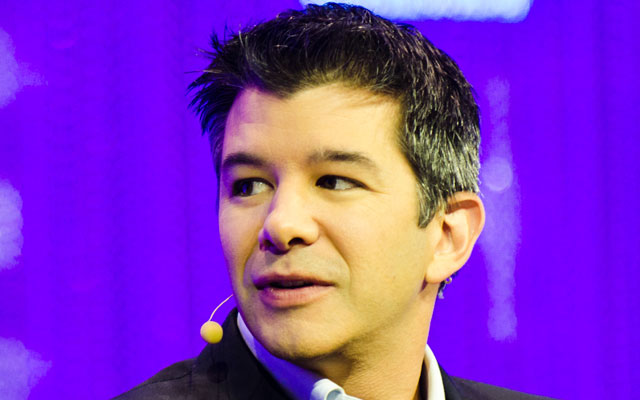
Uber Technologies will sell its China business to Didi Chuxing, the dominant ride-hailing service in the country, according to people familiar with the matter, ending a costly battle between the two companies for customers and drivers.
The valuation of the combined business will be US$35bn, said the people, who asked not to be named because the details aren’t public.
Investors in Uber China, an entity owned by San Francisco-based Uber, Baidu and others, will receive a 20% stake in Didi, the people said. Uber, which is retreating after years of losses in China, will continue to operate its own app in the country for now.
In addition to Uber selling its Chinese subsidiary, the complex deal involves Didi making a $1bn investment in Uber, people familiar with the matter said. Didi had no comment, and Uber declined to comment.
“As an entrepreneur, I’ve learned that being successful is about listening to your head as well as following your heart,” Uber CEO Travis Kalanick wrote in a blog post obtained by Bloomberg before publication. “I have no doubt that Uber China and Didi Chuxing will be stronger together.”
Last year, China’s ride-hailing leaders Didi and Kuaidi joined forces, creating a homegrown juggernaut.
The merged company, Didi Chuxing, brought together backers Alibaba and Tencent, the country’s most valuable Internet businesses. Apple joined in this year with a $1bn investment in Didi in a round that valued the company at about $28bn. The Chinese government passed a new rule last week that legalised ride-hailing services, paving the way for further expansion of these businesses.
But Uber’s investors had been clamouring for the company to sell off its China assets. Both Uber and Didi have been spending significantly to compete in China. Uber has lost more than $2bn in the country, people familiar with the matter said. Meanwhile, Uber was profitable in developed markets in the first half of 2015, the people said.
“Uber and Didi Chuxing are investing billions of dollars in China, and both companies have yet to turn a profit there,” Kalanick wrote in the blog post. “Getting to profitability is the only way to build a sustainable business that can best serve Chinese riders, drivers and cities over the long term.”
The purchase of Uber’s China business may complicate Didi’s alliance with other ride-hailing start-ups around the world. Didi had agreed to work with the US’s Lyft, India’s Ola and Southeast Asia’s Grab to create a global force to take on Uber. Grab CEO Anthony Tan said in a statement on Monday that the impending deal is a victory for Didi and underscores how the ride-hailing business favours domestic players.
In China, Uber ventured where few US technology companies have succeeded. In 2005, Yahoo made a similar deal, selling its businesses in China to Alibaba, along with a $1bn investment — one of the Silicon Valley company’s best bets.
“China is such a tough market, in terms of regulation, competition and culture; they faced challenges on so many fronts,” said Li Yujie, an analyst at RHB Research Institute in Hong Kong. “Cooperating with rather than fighting Didi might not be such a bad idea.”
While Uber will walk away from operations in China, it is taking a significant stake in the largest player there. By shedding its massive losses in China, the move could help Uber clear the path for an eventual initial public offering. — (c) 2016 Bloomberg LP




